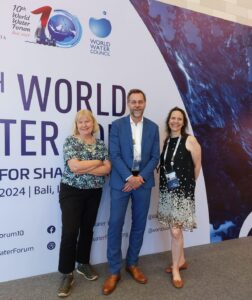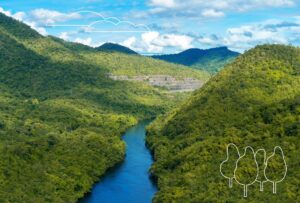Check out the first seminar topic for #WWWeek 2018!
Tapping into collective wisdom: gender sensitive development and water ecosystems Co-convenors: Stockholm International Water Institute (SIWI), World Water Assessment Programme UNESCO...
Tapping into collective wisdom: gender sensitive development and water ecosystems
Co-convenors: Stockholm International Water Institute (SIWI), World Water Assessment Programme UNESCO (WWAP), Women for Water Partnership (WfWP) and Australian Water Partnership
Water is key to combating poverty and achieving sustainable development, while improving human health, livelihood, equitable economic growth and sustaining ecosystems. Water use reflects the social differences, power relations and values present in society that impact women’s empowerment. Gender inclusion in sustainable water resources management has long been widely endorsed globally for emphasising the people-water-ecosystems connection; Gender differentiated indigenous knowledge systems have historically placed such concerns within a broader social and institutional context. Examples of development interventions based on respecting traditional/indigenous knowledge can be useful to highlight the importance of this evolutionary collective wisdom accumulated over time. Conversely, insensitive policy interventions have undermined women’s empowerment and could impact achieving SDGs as well as gender equality through ways to address broader social equity within a water, development and ecosystem nexus. We aspire to establish the links between SDGs 6.6, 15.1, 1 and 5 through this seminar.
The main objective of the seminar will be to contribute to better understanding sustainable development for enhanced ecosystems through gendered transformative approaches. It aims to elaborate on development interventions that capitalised on indigenous/traditional knowledge enhancing water ecosystems. Such approaches would have internalised social structures/systems and power relations in different locations and in context specific development. Examples that show enhanced water allocations control, management, use or protection due to women’s participation will be sought. Contributions establishing baseline and monitoring tools to show such impact will be useful in the implementation of the relevant SDGs 6.6, 15.1, 1 and 5.
Please read more on how to engage and submit your abstract here.
Other seminars
[latest_post post_number_per_row=”3″ rows=”2″ order_by=”menu_order” order=”ASC” category=”seminar-2018″ text_length=”100″]








